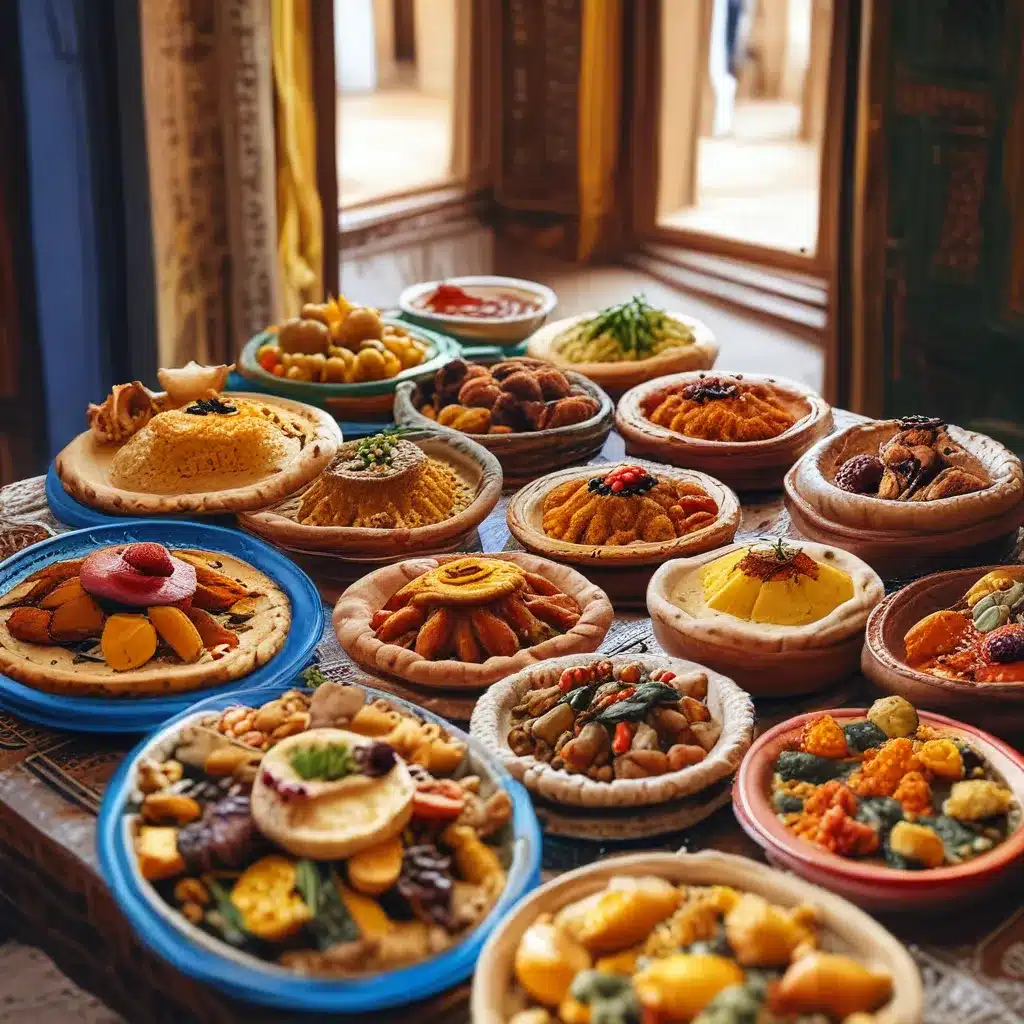
Uncovering the Culinary Gems of Morocco in the Heart of New York City
As a self-proclaimed foodie and cultural enthusiast, I’ve always been drawn to the rich and diverse flavors of Moroccan cuisine. So, when I stumbled upon El Bahia, a hidden gem of a Moroccan restaurant nestled in the bustling streets of New York City, I knew I had to explore it.
El Bahia is an oasis of authenticity, a place where the aromas of spices and the sounds of traditional Moroccan music transport you to the vibrant souks of Marrakech. Stepping through the intricately carved doors, I was immediately captivated by the warm, inviting atmosphere and the meticulously curated décor that pays homage to the country’s rich cultural heritage.
Delving into the Culinary Traditions of Morocco
As I settled into a cozy table, I couldn’t help but be struck by the sheer depth and complexity of Moroccan cuisine. Unlike many of the Westernized versions I had encountered, the menu at El Bahia promised an authentic experience that would challenge my preconceptions and delight my taste buds.
One of the first dishes that caught my eye was the tagine, a traditional Moroccan slow-cooked stew named after the distinctive earthenware pot in which it’s prepared. The aroma of simmering spices and tender, fall-off-the-bone meat wafted through the air, beckoning me to dive in.
As I took my first bite, I was transported to the bustling markets of Fez, where the air is thick with the scent of exotic spices and the sounds of haggling merchants. The flavors were a symphony of sweet, savory, and subtly spicy notes, perfectly balanced and enhanced by the aromatic herbs and the tender, succulent meat.
Moroccan cuisine is known for its use of a wide variety of spices, and the tagine was no exception. The blend of cumin, coriander, cinnamon, and ginger created a depth of flavor that lingered on my palate, leaving me eager to explore more of the menu.
Unveiling the Versatility of Moroccan Cuisine
As I delved deeper into the menu, I discovered the incredible versatility of Moroccan cuisine. From the flaky, buttery msemmen, a layered flatbread that melts in your mouth, to the aromatic couscous, a staple grain that can be dressed up in countless ways, each dish I sampled offered a unique and captivating culinary adventure.
One of the standout dishes was the harira, a hearty lentil and lamb soup that is traditionally served to break the fast during the holy month of Ramadan. The rich, fragrant broth and the tender chunks of lamb created a comforting and satisfying experience, perfectly complemented by the warm, freshly baked khobz (Moroccan flatbread) served alongside.
As I savored each bite, I couldn’t help but marvel at the depth of Moroccan culinary traditions. The use of spices and herbs, the slow-cooking techniques, and the emphasis on fresh, seasonal ingredients all contribute to the unique and captivating flavors that define this cuisine.
Discovering the Art of Moroccan Hospitality
But the experience at El Bahia was not just about the food; it was also about the warm and welcoming hospitality that is so deeply ingrained in Moroccan culture. The attentive staff, led by the charismatic owner, made me feel like a cherished guest, ensuring that every aspect of my dining experience was exceptional.
They enthusiastically shared the stories behind the dishes, educating me on the rich history and traditions that inspired the menu. I learned about the importance of mint tea in Moroccan culture, a ritual that symbolizes hospitality and community, and how the intricate patterns of the Moroccan rugs reflect the country’s artistic heritage.
As I sipped the fragrant mint tea and savored the sweet yet earthy flavors of the baklava, I felt a genuine connection to the culture and a deeper appreciation for the attention to detail that goes into every aspect of Moroccan cuisine and hospitality.
Embracing the Spirit of Moroccan Gastronomy
My experience at El Bahia was not just a meal; it was a cultural immersion, a journey that transported me to the vibrant streets of Marrakech and the serene valleys of the Atlas Mountains. The flavors, the aromas, and the warmth of the hospitality all combined to create a truly unforgettable dining experience.
As I made my way back out into the bustling streets of New York City, I couldn’t help but feel a sense of wonder and gratitude for the opportunity to sample such a rich and diverse culinary tradition. El Bahia had not only satisfied my palate but had also ignited a deeper fascination with the intricacies of Moroccan gastronomy.
I encourage everyone to venture beyond the familiar and explore the captivating world of Moroccan cuisine, where the perfect balance of spices, the slow-cooked perfection, and the warm hospitality come together to create a truly remarkable dining experience. So, the next time you find yourself in New York City, be sure to stop by El Bahia and immerse yourself in the vibrant flavors and rich cultural traditions of Morocco.


